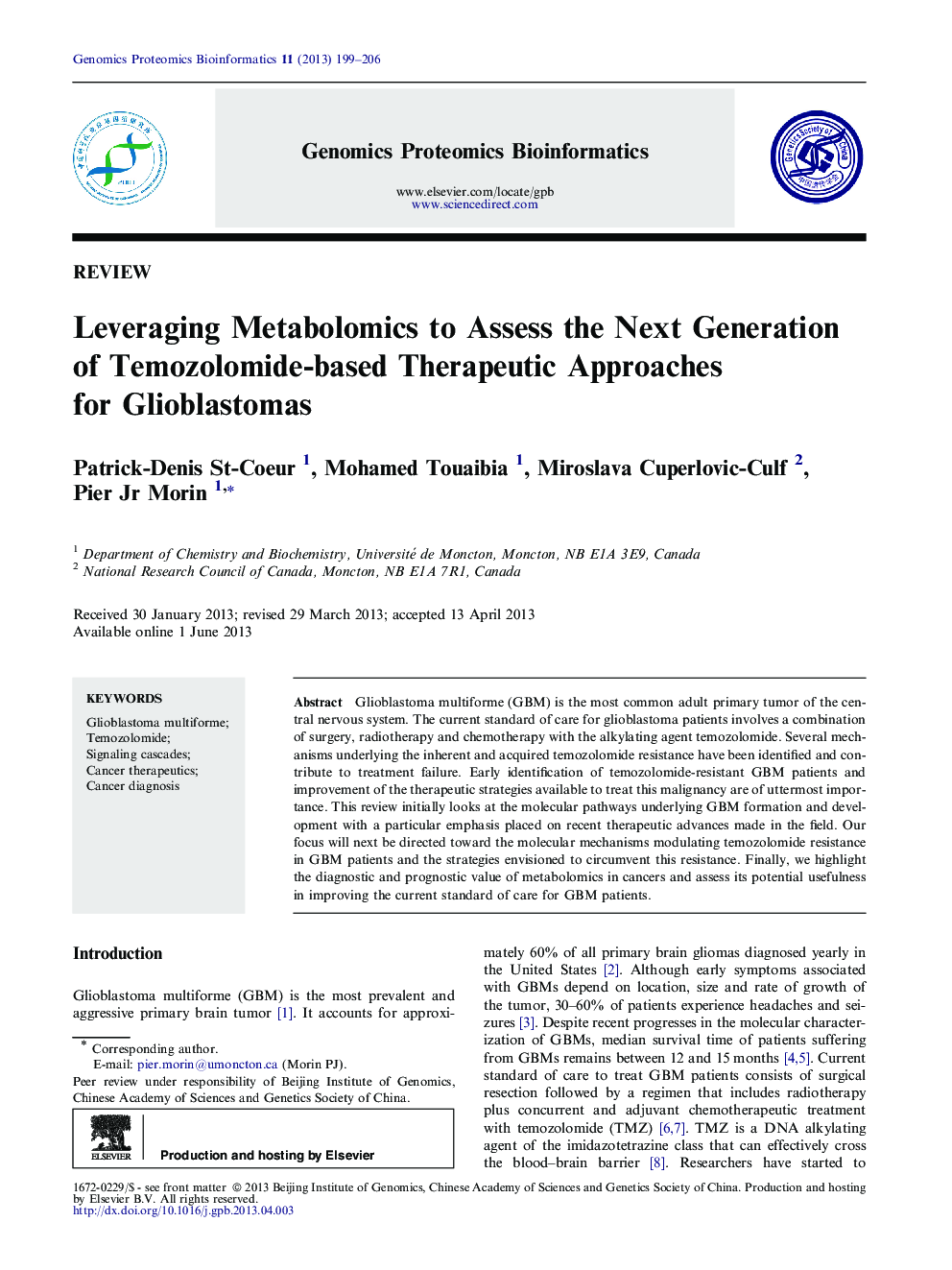| Article ID | Journal | Published Year | Pages | File Type |
|---|---|---|---|---|
| 2822576 | Genomics, Proteomics & Bioinformatics | 2013 | 8 Pages |
Glioblastoma multiforme (GBM) is the most common adult primary tumor of the central nervous system. The current standard of care for glioblastoma patients involves a combination of surgery, radiotherapy and chemotherapy with the alkylating agent temozolomide. Several mechanisms underlying the inherent and acquired temozolomide resistance have been identified and contribute to treatment failure. Early identification of temozolomide-resistant GBM patients and improvement of the therapeutic strategies available to treat this malignancy are of uttermost importance. This review initially looks at the molecular pathways underlying GBM formation and development with a particular emphasis placed on recent therapeutic advances made in the field. Our focus will next be directed toward the molecular mechanisms modulating temozolomide resistance in GBM patients and the strategies envisioned to circumvent this resistance. Finally, we highlight the diagnostic and prognostic value of metabolomics in cancers and assess its potential usefulness in improving the current standard of care for GBM patients.
